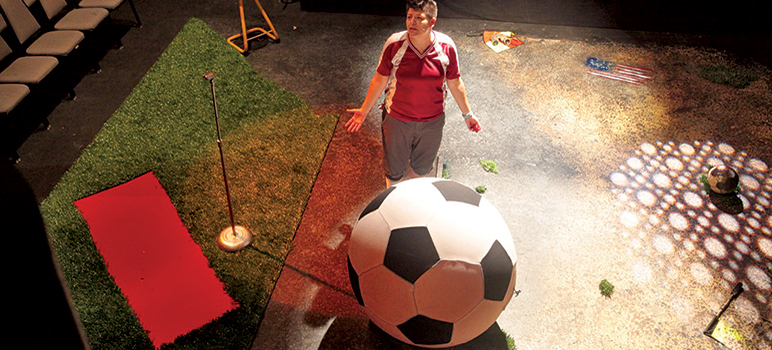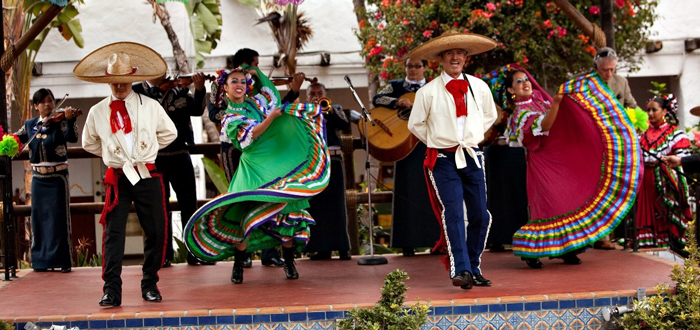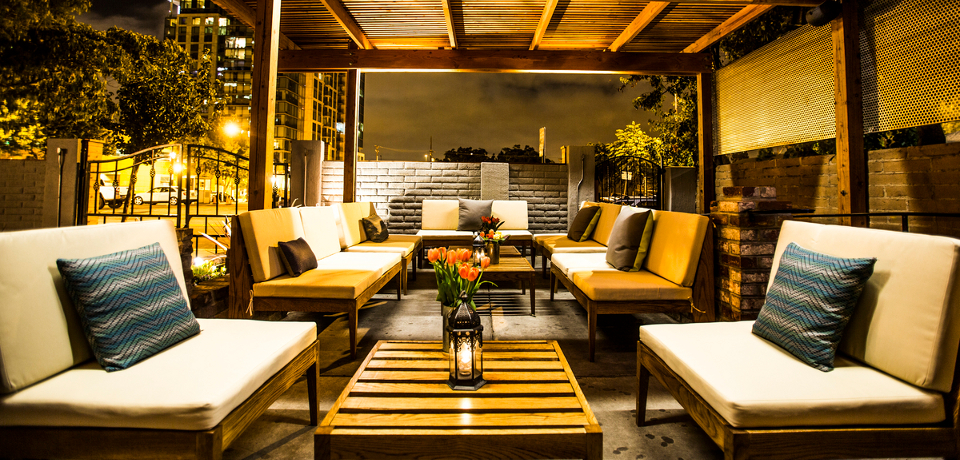Karen Anzoategui defies traditional definitions. With hair coiffed in a bold pseudo-pompadour, Anzoategui is genderqueer and self-identifies as “they,” as opposed to “he” or “she.”
“I always felt different because when I was a child I was probably very showing that I was more of a boy… but, if I was able to choose my gender, and I was supported, I would be both {male and female], I would be the same right now. I’m fluid in both genders. I like this.”
In addition to having non-traditional gender identity, Anzoategui also experienced a childhood split between Argentina and America and struggled to fit in—to belong.
“There are all of these different worlds that exist and I had to fit into them to survive,” they says—”Like school systems that may have white teachers that don’t practice what you do at home.”
In 2006, Anzoategui saw these identity tensions surface during a period of immigration reform that harmed the rights of non-citizens.
“Everyone came out for like the largest protest ever in Los Angeles. So, that was what really inspired the play to be born,” Anzoategui says. “I wanted to talk about these issues, and then later it became about my life story growing up.” The result would be the one-person show Ser!
In Spanish, “Ser” means “to be,” a fitting title for a play about seeking identity. Accompanied by a live band, Anzoategui performs a spoken word epic poem complete with James Brown dancing, constant flurries of motion and impressions of dozens of characters.
The approach is designed to challenge the preconceived notions of others. “The vibrational frequency of the music and the storytelling—it makes [the audience] high, and gets them to a level where they’re like, ‘Whoa, I’m loosening up all these inhibitions that make me uptight and tense,’” Anzoategui says. “It is healing, because at the end I get people on their feet dancing… They connect to not being able to fit in any one way”
The play is a collection of loosely tied snippets from Anzoategui’s life. Raised in the United States, Anzoategui moved to Argentina to escape an abusive, unstable father. While there, Anzoategui experienced both the massive protests against the military dictatorship that made 30,000 dissenters disappear, as well as Diego Maradona’s “Hand of God” goal.
Throughout the play, Anzoategui hits upon a love of all things soccer, using the sport as metaphor—playing with the concepts of rules and boundaries while punctuating major life accomplishments with the long-winded call of Spanish-speaking soccer commentators: “GOOOOL!”
Anzoategui chose the sport as an access point to the non-traditional story. “You can go up to someone and start talking to them about a soccer player, and it will either piss them off, or start a conversation, and it just connects people.” they says. “And that’s always been the case with soccer.”
Anzoategui has since returned to America, studying theater at Loyola Marymount University, but credits Argentina with helping them find and accept an identity.
“Growing up in Argentina too, I could see how women were so embracing of their curves, were so embracing of who they were, and they could do whatever the hell they wanted,” Anzoategui says. “I saw the power of owning yourself.”
Anzoategui decided to tap into this power after several early, unsuccessful attempts to assimilate into ensemble performances.
“I had still not been cast in any shows,” they says. “It was all politics. I didn’t know if it was because I wasn’t white enough, or it’s because I’m queer or its because I’m just not pretty like some other women that could be cast.”
Soon after, Anzoategui began solo material. “It was more rewarding for me, it felt right,” Anzoategui says. “It needed to live and breathe on its own without being contained by something that’s digestible to an audience.”
In this open format, Anzoategui has created a one-of-a-kind piece centering on self-acceptance.
“Be who you are, and it’s ok to find who you are through your journey,” Anzoategui says. “Make whatever you have help you as a human being, living on this earth, for whatever purpose that might be.”
Ser!
Jan 23-24, 8pm; Jan 25, 2pm, $10-$20
MACLA

 Da Kine Island Grill Oozes Aloha
Da Kine Island Grill Oozes Aloha  Bonobos Guideshop Opens at Santana Row
Bonobos Guideshop Opens at Santana Row 







